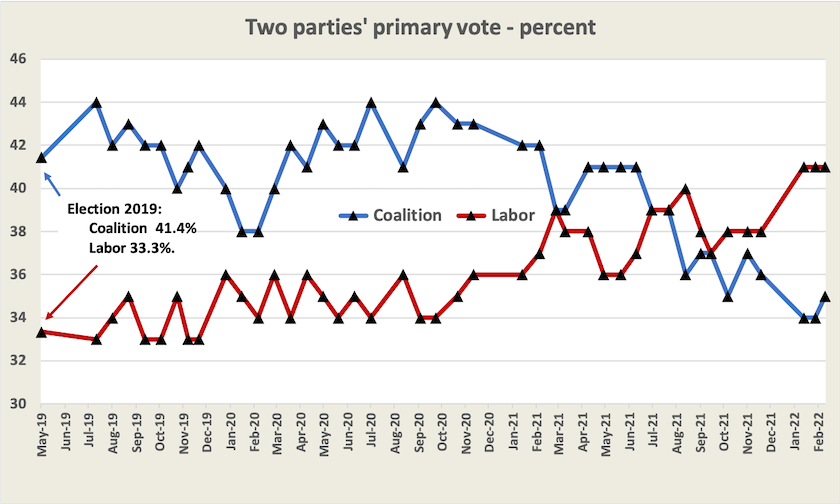Opinion polls
Putin’s popularity
We see clips of protesters on Russian streets, and many Australians would know immigrants from Russia who are disgusted and ashamed by Putin’s behaviour, but opinion polling in Russia suggests that about two-thirds of Russians support what is happening in Ukraine, or, more correctly, what they believe to be happening in Ukraine, according to Denis Volkov, of Moscow’s Levada Center, interviewed on ABC’s PM. (4 minutes)
There are significant age differences in people’s support for Putin and the war, however. That explains the segment’s caption: young Russians aghast at Putin’s war. Also people in Russia’s big cities are more likely to oppose Putin and the war than other Russians.[1] Part of the explanation may lie in the media people use: older people are inclined to get their news from television, which is controlled by the state, while younger people rely on other means.[2]
The Levada Center does not have this latest polling on its website, but it does have some historical data on Putin’s general approval, including a significant boost to his already high approval in 2014, corresponding to Russia’s annexation of Crimea.
Sharon Werning Rivera of New York’s Hamilton College is a specialist in post-communist societies. She and her colleagues regularly survey the opinions of Russia’s elites – Moscow-based people in business, government, universities and the military. Her findings, published in the Washington Post (don’t bother with their website; it’s horrible) are re-published verbatim in Revista de la Prensa: Can Putin keep the oligarchs and Russian elites on his side?. Russia’s elites overwhelmingly believe that Ukraine and Russia should be completely independent countries. In the 1990s the weight of elite opinion was in favour of unification, but that view has completely switched over the last 25 years. Also, and more seriously for Putin, the elites consistently see Russia’s inability to resolve its internal problems as a major threat to its security.
1. It’s notable that these divisions on support for Putin align with similar divisions in Australia, regarding support for Morrison. Unfortunately the Levada Center doesn’t have polling by gender, for which there is a significant divide in Australia. Does Putin have enough sex appeal to overcome women’s disgust at the behaviour of liars and warmongers? ↩
2. Again, there is an analogy in Australia where Murdoch has much control over traditional media. ↩
Australia’s Newspoll
Newspoll will probably be running more regular polls between now and the election.
The latest poll taken on Wednesday to Saturday last week (as Russia’s invasion of Ukraine hotted up), shows hardly any change in the polls taken so far this year. See the graph below.

The lack of movement is telling. When Newspoll first reported a jump in primary support for Labor to 41 percent, I suggested it was a statistical outlier, but when the same figure shows up on two consequent polls it has more credibility. Morrison’s idiotic accusations about Labor’s supposed buddy relationship with Xi and the Chinese Communist Party don’t seem to have had any effect: this is not the 1950s. (See an ABC site for the impression Morrison has made on some Australians with Chinese backgrounds.)
Note that the total Labor + Coalition support is only 76 percent. The other 24 percent hints at an interesting election. Statistically, any estimate away from around the middle is subject to large sampling error, but it does appear that support for the Greens, now about 9 percent, is on a slow downward trend (to the benefit of Labor or independents?) while support for One Nation is stuck at around 3 percent. That other 12 percent includes 4 percent for Palmer’s UAP, reported for the first time, but a single-point figure should be treated with caution. Votes for Greens, the UAP and high-profile independents are likely to have strong regional concentrations.
More analysis of the Newspoll result, including ratings on approval and preferred prime minister, are on William Bowe’s Poll Bludger.